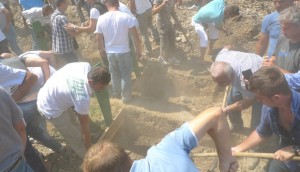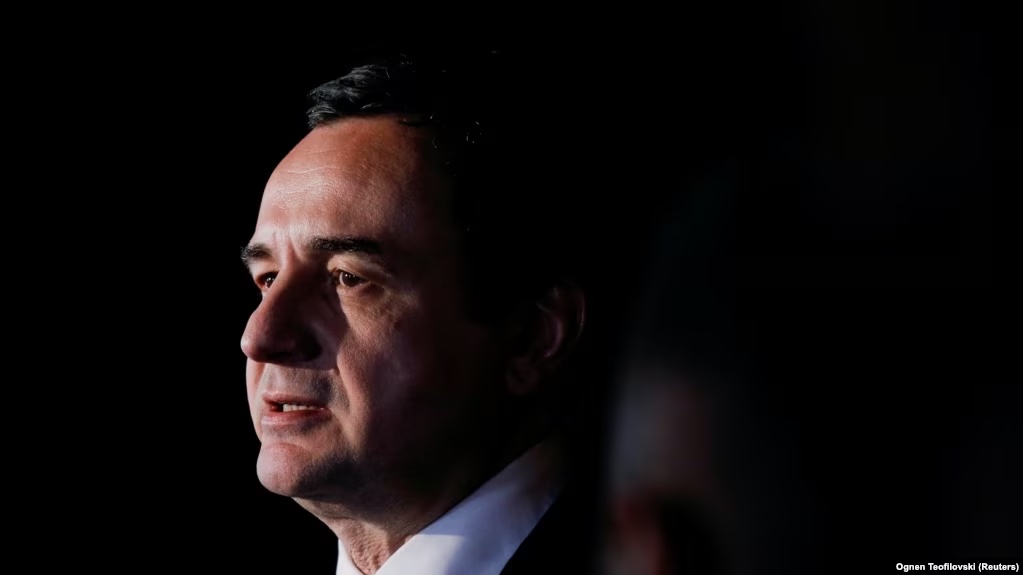Saturday, July 6th 2013

It looks as though leaders in the former Yugoslavia are now more likely to be imprisoned for taking bribes than presiding over mass murder.
On June 5, a court in Slovenia convicted Janez Jansa, who was forced to resign as prime minister earlier this year, of corruption. If he goes to prison, he will be following in the footsteps of Ivo Sanader, the former prime minister of neighboring Croatia, who last year was convicted of taking bribes.
Just as these leaders are facing prosecution, the Yugoslav war-crimes tribunal, which the United Nations Security Council set up in The Hague 20 years ago, is releasing some of the senior officers whose subordinates carried out heinous crimes during the war years of the 1990s. The court, under a presiding judge from the U.S., appears to have weakened the criteria for criminal responsibility, leaving former tribunal officials and observers searching for reasons why.
In a region long distorted by corruption and organized crime, the new activism of local courts in pursuing political leaders is surely a good sign. Jansa was convicted with two others for soliciting a 2 million-euro ($2.6 million) commission from Patria Oyj to secure a contract for the Finnish arms company to supply Slovenia with armored personnel carriers. Jansa has denied the charges and plans to appeal. He says the trial is politically motivated.
In Croatia, Sanader is on trial in another corruption case. In Serbia, Miroslav Miskovic, the country’s best-known business tycoon and head of the Delta Holding conglomerate, was arrested last December. He, too, has been charged with corruption. In April, the president of the Federation of Bosnia and Herzegovina Zivko Budimir, was arrested along with 18 others. According to the New York Times, they are suspected of “abuse of office, illegal intermediation, receiving and giving bribes, organized crime and drug trafficking.”
Some of the region’s alleged gangsters are also finding that the balmy days when their activities appeared to meet with tolerance from the top are ending. On May 5, Naser Kelmendi, a Kosovo Albanian who for many years lived and operated from Sarajevo, was arrested in Kosovo. He moved back there last year after featuring on the U.S. Treasury’s “Kingpin” list of “Specially Designated Nationals and Blocked Persons.”
Only a few years ago, the idea of such big fish being investigated, arrested and jailed in the western Balkans was unimaginable. Then again, the idea that the big fish of the Yugoslav wars would be arrested and put on trial also seemed beyond belief until it began to happen. The UN’s International Criminal Tribunal for the former Yugoslavia started with low-level killers before moving up the chain of command. Of 161 people indicted for war crimes, it has convicted 69 so far, not including those who are appealing.
Several mid-ranking officers were jailed, as were people in charge of those who physically carried out war crimes. Serbia’s wartime leader, Slobodan Milosevic, was indicted, but died during his trial. The court found those who had been in charge of the troops around Srebrenica, where in 1995 about 8,000 Bosniak men and boys were slaughtered, to be guilty of genocide. Believers in international justice took heart. The first war-crimes court since the Nuremberg Trials appeared to be bringing to justice some of the men who ordered mass murder. With the subsequent foundation of the International Criminal Court, the message to national leaders around the world was that if they were complicit in ordering crimes against humanity, they could one day end up in the dock.
However, the tribunal’s president, Judge Theodor Meron, recently created a tougher standard of proof in establishing the command responsibility of senior officers and officials. Previously, the court had convicted on evidence that these senior figures were part of a broad conspiracy to carry out policies such as ethnic cleansing, which involved the perpetration of war crimes. More specific evidence is now required.
Two Croatian generals who were convicted in 2011 of persecution, murder and plunder had those judgments overturned in November. In February, the tribunal overturned the 2011 conviction of the former chief of the Yugoslav general staff, Momcilo Perisic, for aiding and abetting crimes against humanity, including during the siege of Sarajevo and at Srebrenica.. And on May 30, the wartime head of the Serbian State Security Service, Jovica Stanisic, and his right-hand man, Franko Simatovic, were acquitted of the war-crimes charges against them. A Kosovo Albanian guerrilla leader and former prime minister was also acquitted in a retrial last November.
In the trial of the two Serbian security officials, the ruling gave great detail about the crimes committed by their underlings and established the chain of command between them. Yet the court declined to convict the two men, because it said there was no proof that they had specifically directed that the arms, training and funding they provided to units of their service should be used to commit murder and ethnic cleansing. On May 29, by contrast, the court convicted six Bosnian Croat leaders for whom direct orders to commit war crimes could be found.
The redefinition of the tribunal’s criteria for command responsibility “has left many experts in international law baffled and confused,” says Refik Hodzic of the New York-based International Center for Transitional Justice, a nonprofit organization that lobbies for the perpetrators of atrocities to face accountability. “It will have a serious and irreparable effect on the Tribunal’s legacy, both in the former Yugoslavia and internationally.”
In the Balkans, those who want their countries better run and policed have good reason to be cheered by the recent rash of prosecutions for graft. As Ines Sabalic, a Croatian journalist in Brussels, likes to say, “anti-corruption is the new nationalism” in the Balkans, pursued because it is popular. Yet those who believed the Yugoslav tribunal could help deliver justice to the victims of war are increasingly appalled, bitter and disappointed. They want to know why./bloomberg




